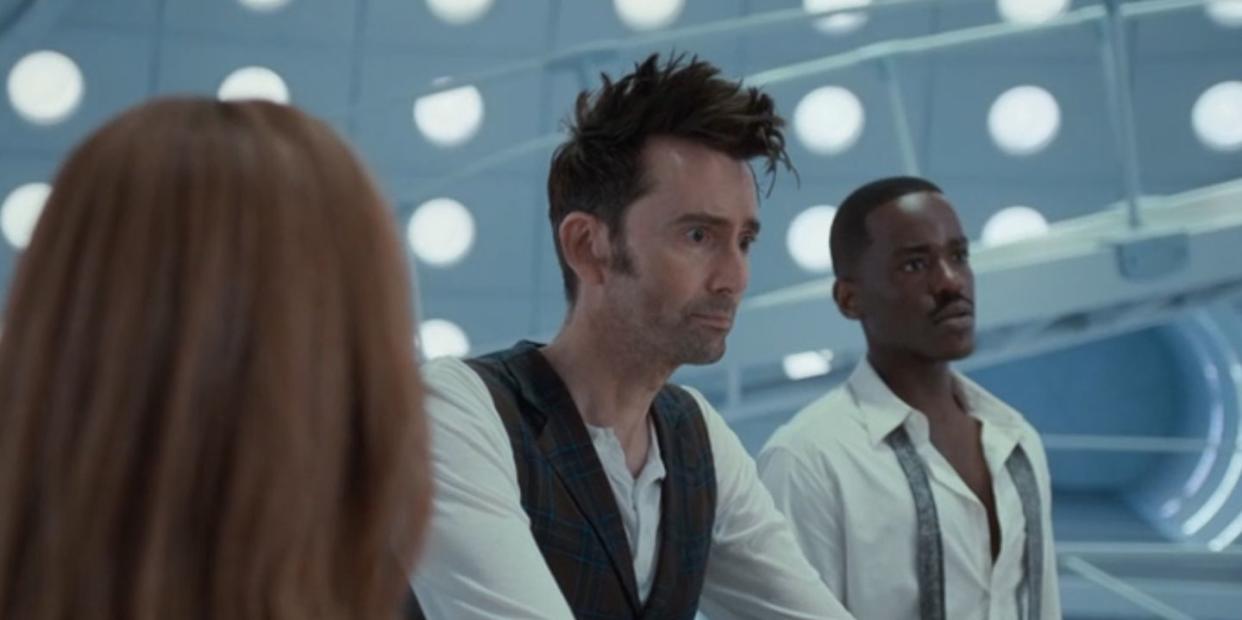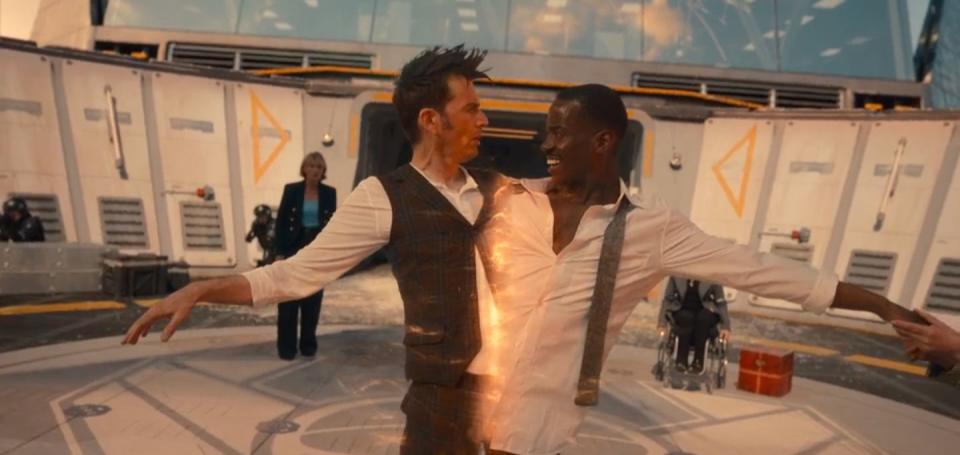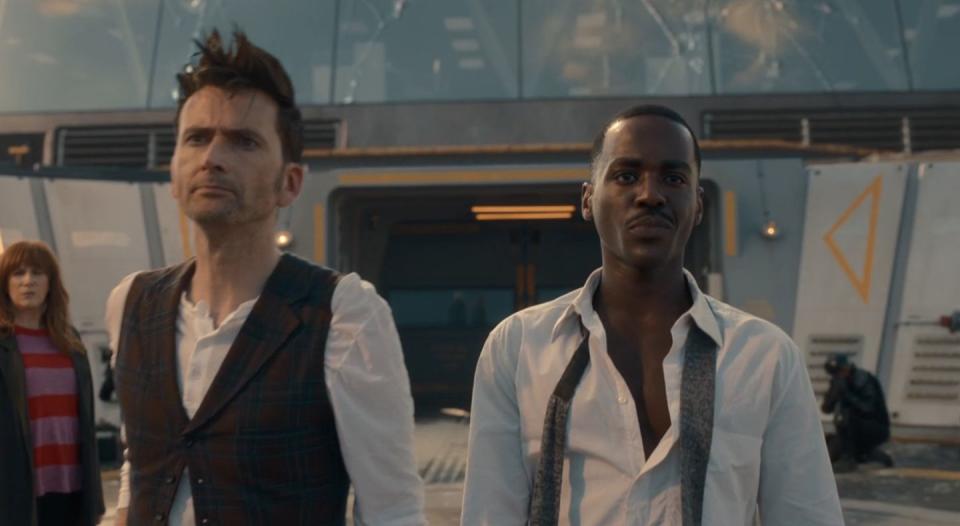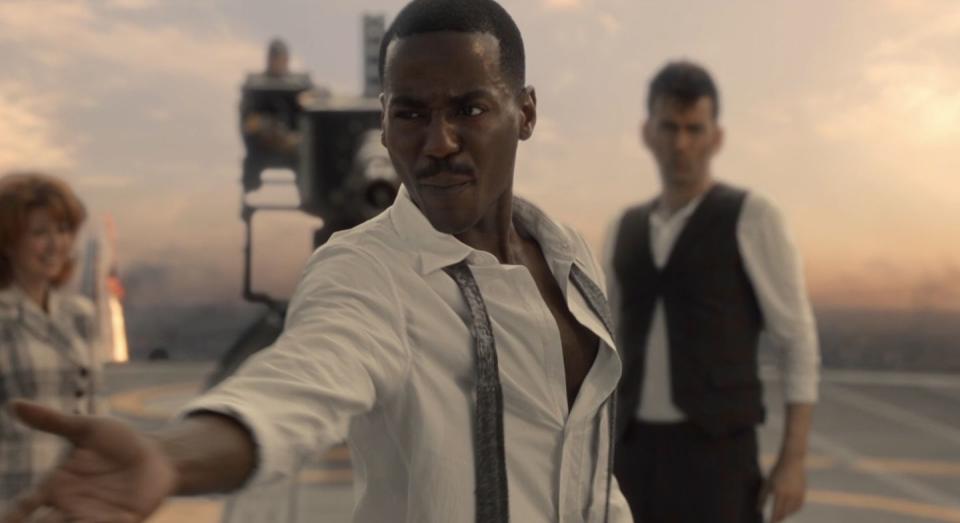Why Doctor Who's regeneration twist isn't a disservice to Ncuti Gatwa

Doctor Who 'The Giggle' spoilers follow.
"It feels different this time," said David Tennant's Fourteenth Doctor as his skin turned regeneration luminescent in 'The Giggle'. Asking his two former companions to pull at his arms like he had been hoisted up onto a makeshift rack, out popped Ncuti Gatwa's head like a handsome Hydra.
So goes the first ever bigeneration, a duplicating version of the well-worn regeneration, which we were told has always been something of Time Lord myth. Maybe the chief reason the Whoniverse only just introduced the concept of bigeneration is that trying to render it on the pre-Disney budget would have been a tougher feat.
Yet what it inadvertently does is leave open the door to David Tennant coming back for a third helping as the Doctor, thus putting Gatwa in the curious and unique position of being the first ever 'pretty much but not exclusively The Doctor' Doctor.

While fans could now be left clamouring for Tennant to come back, after the rip-roaring ride of these three 60th-anniversary specials, we've not had any indication he's lacing up his Converses for good.
Yet the possibility that he one day could rev up his duplicate TARDIS and whizz back onto our screens leaves Tennant slightly hovering over the Fifteenth Doctor's shoulder.
It poses the question of whether Gatwa, who is the first Black and openly queer man to play the Time Lord, should have been left to go forth as the one and only Doctor in his own right.
While it’s a legitimate issue to raise, the scenes afforded by the bigeneration between Gatwa and Tennant are ingenious because they build a deliberate bridge between this new era and one of the most successful periods of the show's modern incarnation.
Giving Gatwa such a solid jumping off point with, arguably, the most popular modern Doctor of the lot feels even more significant given that he's coming into proceedings in the wake of a rather fallow period.

After the TARDIS skirted off into the ether in 'Wild Blue Yonder', the Doctor delivered a monologue on the majesty of his blue box. He painted a picture for imposter Donna of a civilisation's ebb and flow around the TARDIS and how it could live on through it all.
The moment appeared to be a metaphor for Doctor Who as a whole and the similar wax and wane of reverence for the show. Russell T Davies has said how unpopular a move it was to reboot the sci-fi classic in 2005 and he's now been parachuted back in to juice up the BBC staple.
Seeing Gatwa and Tennant interact together in the final act of 'The Giggle' allowed for a more concrete passing of the baton, which the instant body-swap of classic regenerations never really have.
It was also then we learned another nugget of lore to give Ncuti's Fifteenth Doctor some primacy over Tennant's Fourteenth, as Donna tells him he's the "older", and implicitly wiser, Time Lord of the two. Even in their brief scenes together, the Fifteenth Doctor has a calm assurance in the face of the Fourteenth's wobbles.

While the bigeneration might seem like a diminishing of Gatwa's role as the Doctor when viewed in its simplest terms, now that we've finally seen him in the role, it's impossible to think of him as anything less than the Doctor. He's so cooly comfortable – even on a helipad in his underpants – that it doesn't seem his star can be dimmed by the existence of other Doctors out there somewhere.
Ultimately, this major change of the bigeneration is why there is a 60th anniversary to be had in the first place, because it's not a show that's against reinventing itself and changing the rules to keep us guessing.
Doctor Who's 'The Church on Ruby Road' will air on Christmas Day (December 25).
You Might Also Like


